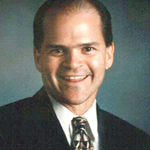Autism: How Vision Therapy Can Help
Most parents looking for help for an autistic child probably wouldn’t think of scheduling a visit with an eye doctor.
But perhaps they should, according to Dr. Rick Graebe of the Children’s Vision and Learning Center of Versailles.
Dr. Graebe is a behavioral optometrist whose practice specializes in Vision Therapy, a kind of physical therapy for the eyes, body and brain.
Dr. Graebe is quick to point out that his practice doesn’t treat autism and ADHD.
“We don’t treat conditions,” he said. “We work with patients and improve their performance.”
In some children with autism, their core visual skills are disrupted because their focal (parvocellular) and peripheral (magnocellular) vision is not integrated.
That makes it difficult for children to feel where their body is in space.
Often, a child with ADD will wriggle in his chair at school as he seeks other sensory feedback to get a sense of his place in space.
To help these children, Dr. Graebe uses yoked prism glasses, which are clear with both prisms turned in the same direction.
Patients wearing these glasses become “new observers,” according to Dr. Graebe, “like they are looking at things for the first time.”
Graebe recently treated an 8-year-old boy with autism. His mother lamented that her son was unable to make eye contact, and the father yearned to play catch with his boy.
At Dr. Graebe’s office, the boy was fitted with yoked prism glasses and promptly looked all around, exploring the new way things looked.
After a few exercises, the boy, for the first time, looked his mother in the eye and rolled a ball with his father.
“Science isn’t smart enough yet to explain these improvements in performance. We just know it works,” Dr. Graebe said.
An inspiration for this therapy comes from the book, “Seeing Through New Eyes: Changing the Lives of Children with Autism, Asperger Syndrome and Other Developmental
Disabilities Through Vision Therapy,” by optometrist Melvin Kaplan.
Patients who are prescribed yoked prism glasses learn activities at Graebe’s office and then practice them at home until they become habit.
“One optometrist explained once that we are liberators,” Dr. Graebe said. “We are freeing people to reach their potential.
“Using our knowledge to make lives better is what health care is all about.”

